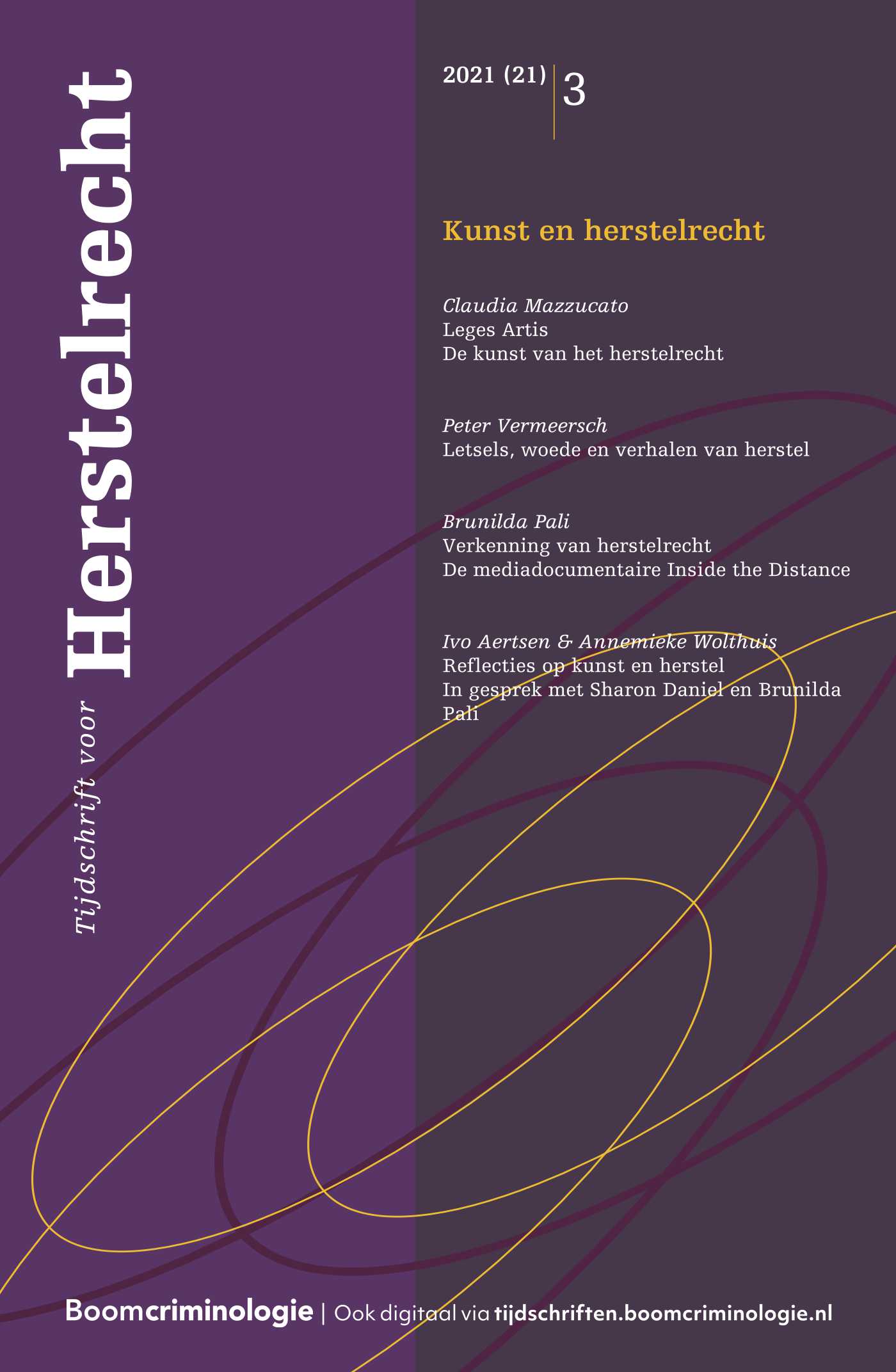|
Some believe that the credibility of restorative justice can be increased if more attention is given to the quality of the mediator, as well as methods to select people with the right profile or by training. At first glance this seems a legitimate aim: mediation services should offer quality. Reflecting on practical experience and research into mediation between offenders and victims in Flanders, the author problematizes these assumptions. The quest for tangible quality to ensure ‘credibility’ refers to a neo-liberal approach aimed at reducing risks and promoting the client’s satisfaction. In this article the author confronts the apolitical approach of client satisfaction with alternative ideas about (restorative) justice. Ideally, the mediator is critical of established (legal) authorities and professional expertise. Mediation is political in nature, even if the mediator relies on neutrality. The mediator must be aware of his – inevitable – political stance and should be ready to be interrogated on this matter. |


Tijdschrift voor Herstelrecht
Meer op het gebied van Mediation en herstelrecht
Over dit tijdschriftMeld u zich hier aan voor de attendering op dit tijdschrift zodat u direct een mail ontvangt als er een nieuw digitaal nummer is verschenen en u de artikelen online kunt lezen.
| Column |
Vijandstrafrecht |
| Auteurs | Thom Holterman |
| Auteursinformatie |
| Diversen: Wetsvoorstel |
Op weg naar een Wetboek van herstel- en strafprocesrecht |
| Auteurs | John Blad, Jacques Claessen, Anneke van Hoek e.a. |
| Auteursinformatie |
| Redactioneel |
Herstelbemiddelaars: hun kwaliteiten en hun politieke rol |
| Auteurs | Janny Dierx en Bas van Stokkom |
| Auteursinformatie |
| Redactioneel |
De moderator van het herstelrechtelijke proces: de figuur van de bemiddelaar |
| Auteurs | Lode Walgrave |
| Auteursinformatie |
| Artikel |
Over de vraag naar de kwaliteit van de bemiddelaar |
| Trefwoorden | Bemiddelaar, kwaliteit, Rechtskarakter herstelrecht, Strafrechtspleging |
| Auteurs | Leo Van Garsse |
| SamenvattingAuteursinformatie |
| Artikel |
Politiemensen en herstelbemiddelaars: knooppunten in het Utrechtse Mediatiemodel |
| Trefwoorden | Politie, Utrecht, Vreedzame Wijkaanpak, Vreedzame Schoolaanpak, Utrechts Mediatiemodel |
| Auteurs | Toaufik Elfallah en Janny Dierx |
| SamenvattingAuteursinformatie |
|
The authors focus on the restorative justice policies of the city of Utrecht. The Utrecht Mediation Model is a framework in which so called Peaceful Schools and Peaceful Community organisations work together with inhabitants, youth, police officers, public prosecutors and mediators (both voluntary mediators and professional registered mediators). The authors discuss some of the benefits of this large-scale collaboration in Utrecht-neighbourhoods. The added value of the Model is especially felt in so-called Large and Xtra-Large community conflicts. The mediators work together with police officers in order to realise peaceful solutions, while safeguarding the autonomy and independence that both professions require. The authors also discuss some of the competences of the professionals involved. Finally they address the financial revenues of the Model; public spending is relocated from repressive to restorative strategies. |
| Artikel |
Mediator in strafzaken: een vak apart! |
| Trefwoorden | strafrecht, Escalatie, Psychiatrie, Contra-indicaties, Secundaire victimisatie |
| Auteurs | Tanja van Mazijk en Marion Uitslag |
| SamenvattingAuteursinformatie |
|
The mediator in criminal cases operates in special setting which requires specific competences: knowledge of the field of criminal law, knowledge of psychiatric/psychological problems and – if necessary – be able to consult a network of experts in that field, being prepared to operate in complex offender-victim relations and also to deal with high-escalated conflicts. These requirements raise a number of questions regarding the rules of the Dutch mediation federation, which are not designed to be used in the context of criminal law. Mediators in criminal cases are in need of other rules and pre-conditions to fulfil their work adequately. |
| Praktijk |
De mediator in strafzaken – over focus, teamverband en multipliereffect |
| Auteurs | Makiri Mual |
| Auteursinformatie |
| Praktijk |
De betere bemiddelaar: gedreven, en bedreven in taal en toon |
| Auteurs | Dirk Dufraing |
| Auteursinformatie |
| Praktijk |
Doe ik het wel goed? Kansen tot groei in het kwalitatief werken binnen de bemiddelingspraktijk |
| Auteurs | Evelyn Goeman |
| Auteursinformatie |
| Praktijk |
De figuur van de bemiddelaar |
| Auteurs | Nancy Van Eynde |
| Auteursinformatie |
| Praktijk |
De scenarist en de ober: gewikt en gewogen |
| Auteurs | Kris Vanspauwen |
| Auteursinformatie |
| Discussie |
Wetsontwerp Wet Bevordering Mediation en de Nederlandse mediator in strafzaken – kritische kanttekeningen |
| Auteurs | Antonietta Pinkster |
| Auteursinformatie |
| Boekbespreking |
Vreedzaam vechten? Enkele vragen en commentaar |
| Auteurs | Lode Walgrave |
| Auteursinformatie |
